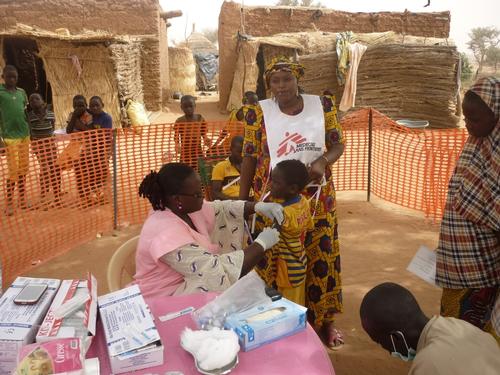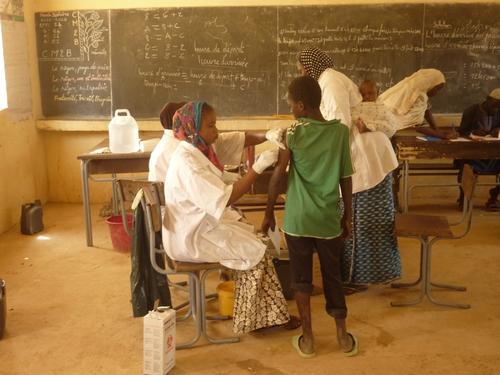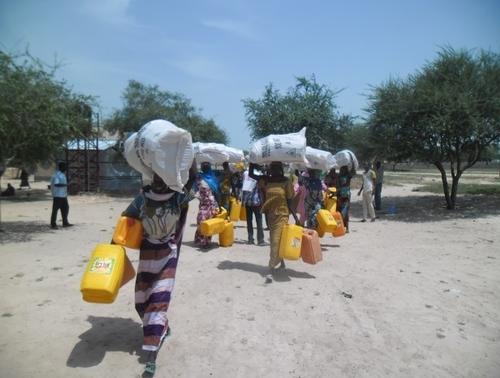Since the beginning of 2016, an outbreak of meningitis C has been affecting every region of Niger. Médecins Sans Frontières (MSF) has deployed emergency teams and has been supporting the Ministry of Health to contain the epidemic since January. The number of weekly cases is now decreasing but there are insufficient stocks of vaccine available to protect those at risk in the event of another outbreak of the disease.
According to official figures, 1,199 cases of meningitis C have been identified and 87 people have died of the disease, mostly in the western part of the country. There was a continual rise in cases between January and mid-March, after which the number of new infections started to fall.
Since the beginning of the epidemic, MSF has been supporting the Ministry of Health to monitor the affected areas, vaccinate people and provide free treatment to patients. To contain the epidemic in the worst-affected areas, MSF has conducted targeted vaccination campaigns in collaboration with the Ministry of Health. More than 254,000 people have been vaccinated in the health districts of Tillabery, Dosso and Tahoua regions, using doses obtained from the International Coordination Group for the supply of vaccines, as well as Ministry of Health and MSF stocks. 126,000 additional vaccine doses are expected to arrive at the end of April.

A lack of vaccines worldwide
According to the preparedness and response plan for meningitis epidemics in Niger, 2.8 million people should be vaccinated if an outbreak affects 21 health districts. However, so far immunisation campaigns have been carried out in only six of these 21 districts. "The problem is that, nationally and globally, not enough meningitis C vaccines are available and the vaccine is expensive. Manufacturers need to urgently increase their production and sell it at an affordable price, but they are not doing so," says Dr Idrissa Compaoré, a medical coordinator for MSF. In addition to organizing vaccination activities, MSF supports the Ministry of Health to prevent new cases by training public sector laboratory staff in diagnostics, testing and the transport of samples. "If we don’t have vaccines, it is essential that we identify and confirm new cases as soon as possible, to prevent the disease from spreading. Information must be collected and shared, and patients treated without delay," says Dr Idrissa Compaoré.
Training, donations, monitoring and responding to alerts
MSF has trained 80 laboratory technicians in 32 medical facilities and donated equipment to boost testing capacity in laboratories across all eight regions of the country. MSF teams also travel with Ministry of Health staff to places where there have been confirmed cases to assess and support treatment. MSF provides equipment, medicines and staff to health centres and trains local health staff to care for meningitis patients. So far MSF has trained 148 health centre managers and 51 health staff working in seven district hospitals.
MSF teams had already supported the Nigerien Ministry of Health to respond to a meningitis epidemic affecting Niamey, Zinder, Tahoua, Tillabery and Dosso regions in 2015. There were 8,500 cases, including 573 deaths, during this epidemic.






